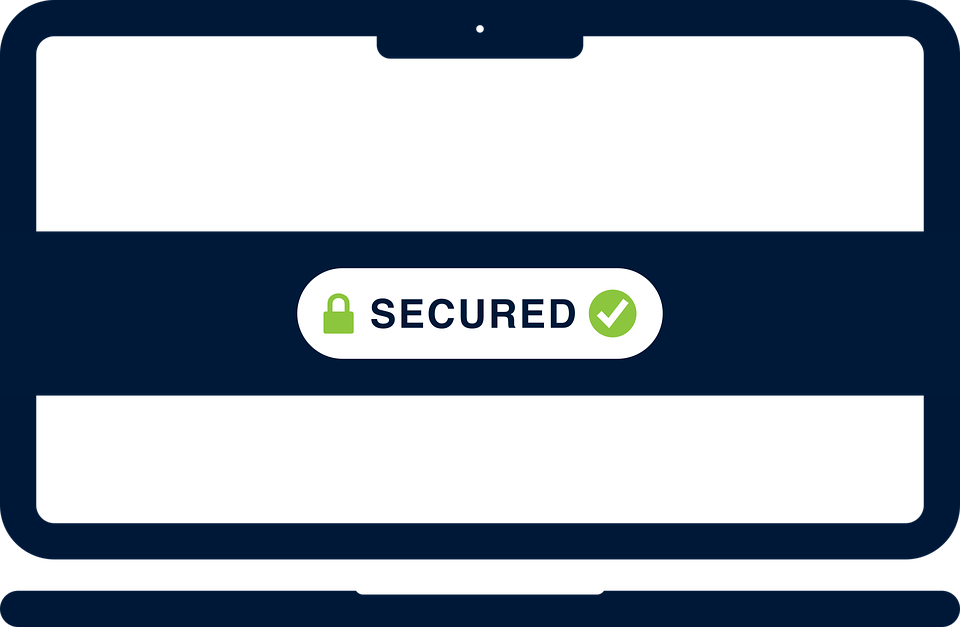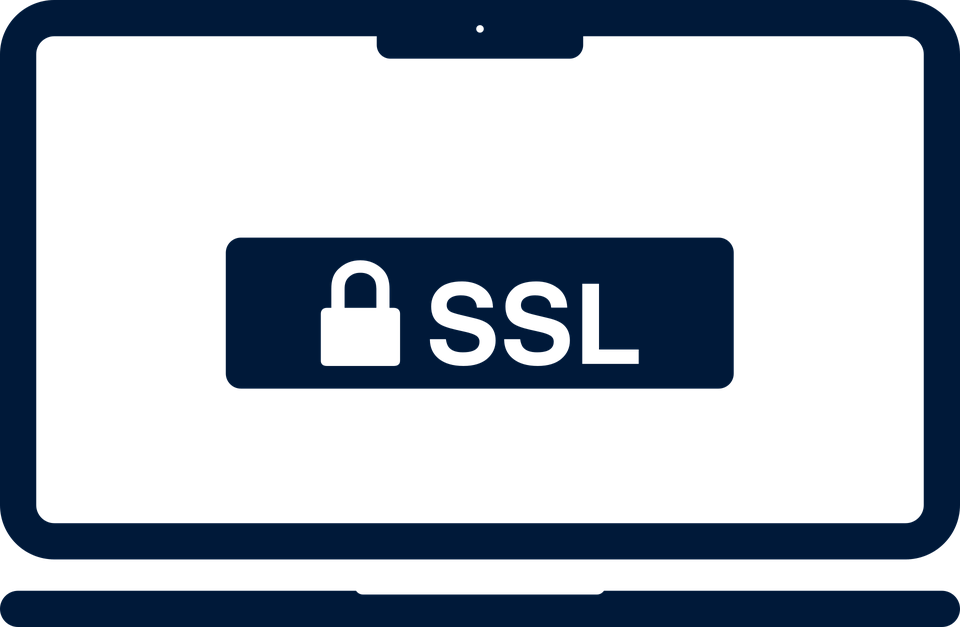To add SSL (Secure Sockets Layer) to your website, you can follow these general steps:
- Purchase an SSL certificate: You can purchase an SSL certificate from a trusted SSL certificate provider or from your web hosting provider. Make sure to choose the appropriate SSL certificate type for your website’s needs, such as a single domain SSL certificate or a wildcard SSL certificate.
- Generate a CSR (Certificate Signing Request): A CSR is a file that contains your website’s public key and other identifying information. You can generate a CSR through your web hosting control panel or through OpenSSL.
- Submit the CSR: Once you have generated the CSR, you will need to submit it to the SSL certificate provider. They will then verify your identity and issue the SSL certificate.
- Install the SSL certificate: Once you receive the SSL certificate, you will need to install it on your web server. The exact process for installing the SSL certificate will vary depending on your web hosting provider and the type of web server you are using.
- Configure your website to use HTTPS: After the SSL certificate is installed, you will need to configure your website to use HTTPS instead of HTTP. This can be done by updating your website’s URL and any links or references to HTTP resources.
- Test the SSL certificate: Once you have completed the installation and configuration process, you should test the SSL certificate to ensure that it is working properly. You can use an online SSL checker or browser tools to verify that your website is using HTTPS and that the SSL certificate is valid.
Overall, adding SSL to your website is an important step in securing your website and protecting your users’ data. Make sure to follow best practices for SSL configuration and regularly monitor your SSL certificate to ensure that it remains valid and secure.
What is SSL Certificate
An SSL (Secure Sockets Layer) certificate is a digital certificate that provides authentication and encryption for a website or web application. SSL certificates are used to establish a secure, encrypted connection between a web server and a web browser.
When a user visits a website that uses SSL, their web browser and the web server perform a handshake process to establish a secure connection. The SSL certificate is used to verify the identity of the website and to encrypt data that is transmitted between the user’s browser and the web server.
SSL certificates are typically issued by trusted third-party certificate authorities (CAs), which verify the identity of the website owner before issuing the certificate. This helps to ensure that users can trust that the website they are visiting is legitimate and that their data is secure.
SSL certificates are essential for websites that collect sensitive information such as passwords, credit card numbers, and other personal information. They can also help to improve website search rankings, as search engines such as Google prioritize websites that use SSL.
In summary, an SSL certificate is a digital certificate that provides authentication and encryption for a website or web application, helping to establish a secure connection between a web server and a web browser.
What is the use of SSL Certificate
The primary use of an SSL (Secure Sockets Layer) certificate is to secure the connection between a website or web application and its users. SSL certificates provide several benefits, including:
- Encryption: SSL certificates encrypt data that is transmitted between the user’s browser and the web server, making it more difficult for hackers to intercept or steal sensitive information such as passwords, credit card numbers, and other personal information.
- Authentication: SSL certificates verify the identity of the website or web application, ensuring that users can trust that the website they are visiting is legitimate and not a fake or phishing website.
- Improved search rankings: Search engines such as Google prioritize websites that use SSL, which can help to improve website search rankings and visibility.
- Compliance with industry standards: Many industries have regulations and standards that require websites to use SSL certificates, particularly for websites that handle sensitive information such as healthcare information, financial information, or personal data.
Overall, SSL certificates are essential for websites and web applications that handle sensitive information or require a high level of security. By providing encryption and authentication, SSL certificates help to protect users’ data and establish trust between the website and its users.
What’s the price of SSL certificate
The price of an SSL (Secure Sockets Layer) certificate can vary depending on several factors, including the type of SSL certificate, the certificate authority (CA) that issues the certificate, and the length of the certificate’s validity.
Generally, a basic SSL certificate can cost anywhere from $10 to $100 per year, while more advanced SSL certificates such as wildcard or extended validation (EV) certificates can cost several hundred dollars per year. Some web hosting providers offer free SSL certificates as part of their hosting packages, while others may charge an additional fee for SSL certificate installation and management.
It’s important to note that while the cost of an SSL certificate may be a consideration, choosing a trusted SSL certificate provider and the appropriate type of SSL certificate for your website’s needs is more important to ensure security and user trust.
How many types of SSL Certificate are there

There are three main types of SSL (Secure Sockets Layer) certificates:
- Domain Validated (DV) SSL Certificates: This is the basic type of SSL certificate that verifies the domain name ownership of the website. It is the quickest and least expensive type of SSL certificate to obtain, and is suitable for most small to medium-sized websites.
- Organization Validated (OV) SSL Certificates: This type of SSL certificate requires additional verification of the organization’s identity and ownership of the domain name. It provides higher levels of security and assurance than a DV SSL certificate, and is suitable for larger organizations or websites that handle sensitive information.
- Extended Validation (EV) SSL Certificates: This is the highest level of SSL certificate and provides the highest level of trust and security for users. It requires the most rigorous identity verification process and displays a green address bar in the user’s browser, indicating that the website is secure and legitimate. This type of SSL certificate is typically used by large financial institutions, e-commerce websites, and other high-security websites.
In addition to these three main types, there are also other types of SSL certificates such as wildcard SSL certificates and multi-domain SSL certificates, which allow you to secure multiple subdomains or domain names with a single certificate.
How can we install free SSL
There are several ways to install a free SSL (Secure Sockets Layer) certificate for your website, depending on your web hosting provider and the type of SSL certificate you want to use. Here is a general overview of the steps you can take:
- Choose a Certificate Authority (CA): There are several free SSL certificate providers available, including Let’s Encrypt, Cloudflare, and ZeroSSL. Choose the one that best fits your needs and follow their instructions for obtaining a free SSL certificate.
- Generate a Certificate Signing Request (CSR): This is a file that contains information about your website and is used to generate your SSL certificate. Your web hosting provider should have instructions on how to generate a CSR, or you can use an online CSR generator tool.
- Obtain the SSL Certificate: Follow the instructions provided by your chosen CA to obtain your SSL certificate. This may involve verifying your domain ownership or completing other verification steps.
- Install the SSL Certificate: The process for installing an SSL certificate will vary depending on your web hosting provider and the type of SSL certificate you are using. Some web hosting providers may offer automatic installation of SSL certificates, while others may require manual installation. Follow the instructions provided by your web hosting provider or SSL certificate provider to install the certificate.
- Verify the SSL Installation: Once you have installed the SSL certificate, verify that it is working correctly by accessing your website using the HTTPS protocol. Your web browser should display a lock icon or other indicator that the website is secure.
It’s important to note that while free SSL certificates can provide basic security for your website, they may not provide the same level of assurance or features as paid SSL certificates. If you have a large or high-traffic website, or if you handle sensitive information, you may want to consider a paid SSL certificate for added security and features.
What is SSL Certificate
An SSL (Secure Sockets Layer) certificate is a digital certificate that provides authentication and encryption for a website or web application.
What is the use of SSL Certificate
The primary use of an SSL (Secure Sockets Layer) certificate is to secure the connection between a website or web application and its users.
What’s the price of SSL certificate
The price of an SSL (Secure Sockets Layer) certificate can vary depending on several factors, including the type of SSL certificate, the certificate authority (CA) that issues the certificate, and the length of the certificate’s validity.








